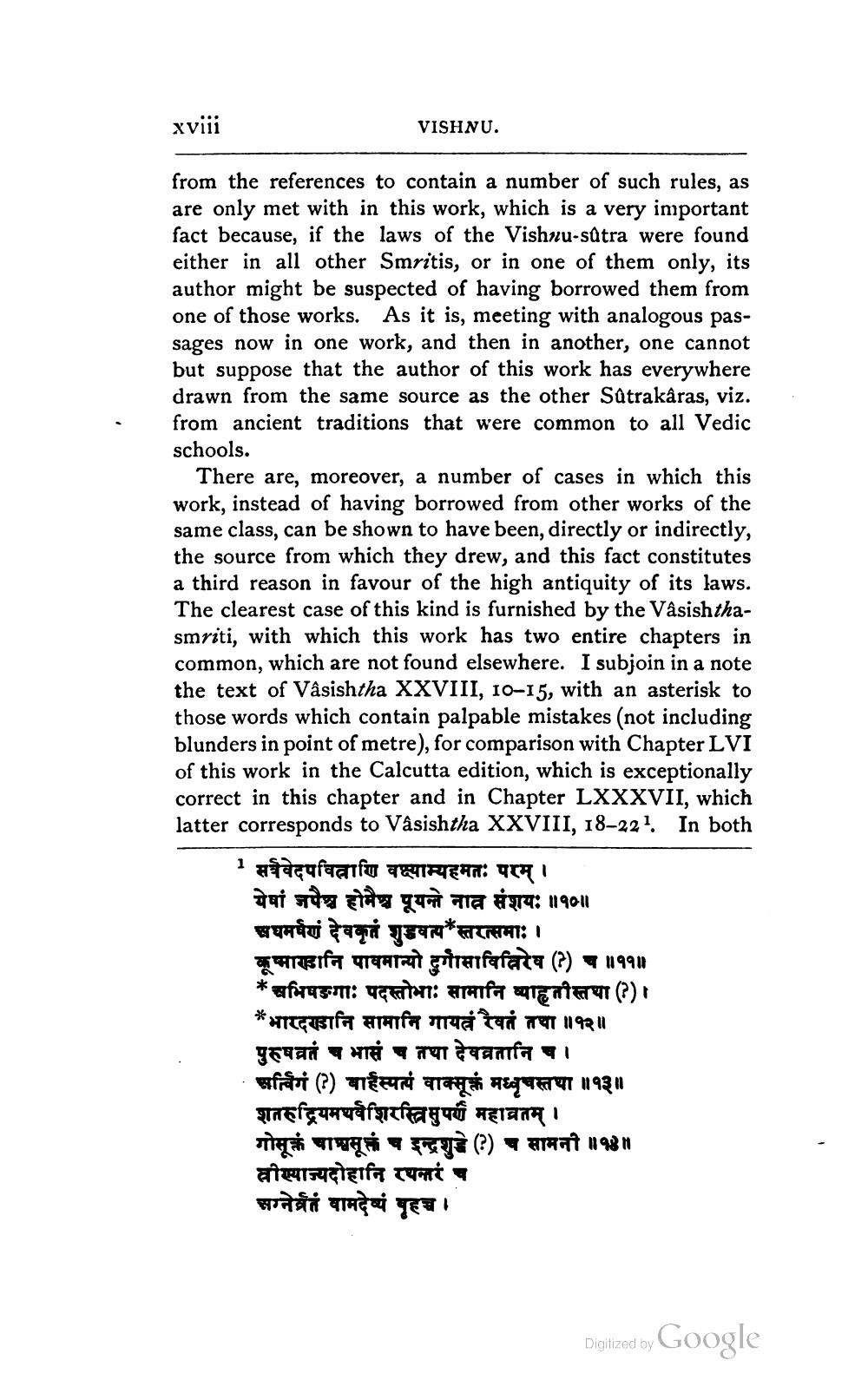________________
xviii
VISHNU.
from the references to contain a number of such rules, as are only met with in this work, which is a very important fact because, if the laws of the Vishnu-sâtra were found either in all other Smritis, or in one of them only, its author might be suspected of having borrowed them from one of those works. As it is, meeting with analogous passages now in one work, and then in another, one cannot but suppose that the author of this work has everywhere drawn from the same source as the other Satrakâras, viz. from ancient traditions that were common to all Vedic schools.
There are, moreover, a number of cases in which this work, instead of having borrowed from other works of the same class, can be shown to have been, directly or indirectly, the source from which they drew, and this fact constitutes a third reason in favour of the high antiquity of its laws. The clearest case of this kind is furnished by the Vasishthasmriti, with which this work has two entire chapters in common, which are not found elsewhere. I subjoin in a note the text of Vâsishtha XXVIII, 10–15, with an asterisk to those words which contain palpable mistakes (not including blunders in point of metre), for comparison with Chapter LVI of this work in the Calcutta edition, which is exceptionally correct in this chapter and in Chapter LXXXVII, which latter corresponds to Vâsishtha XXVIII, 18-221. In both
1 सर्ववेदपवित्राणि वक्ष्याम्यहमतः परम् । येषां जपैश्च होमैश्च पूयने नात्र संशयः ॥१०॥ अघमर्षणं देवकृतं शुडवत्य स्तरसमाः । कूमारहानि पापमान्यो दुगासावित्रिरेष () च ॥११॥ * अभिषङगाः पदस्तोमाः सामानि व्याहतीस्तथा (१)। *भारदण्डानि सामानि गायत्रं रैवतं तथा ॥१२॥ पुरुषव्रतं च भासं च तथा देवव्रतानि च । अत्विगं (2) बार्हस्पत्यं वाक्सूक्तं मध्वृषस्तथा ॥१३॥ शतरुद्रियमथर्वशिरस्त्रिसुपर्ण महाव्रतम् । गोसूक्तं पाश्वसूक्तं च इन्द्रशुद्धे (2) च सामनी ॥१४॥ वीण्याज्यदोहानि रपनारं च सग्नेव्रतं वामदेव्यं बृहच्च।
Digitized by
Digitized by Google




